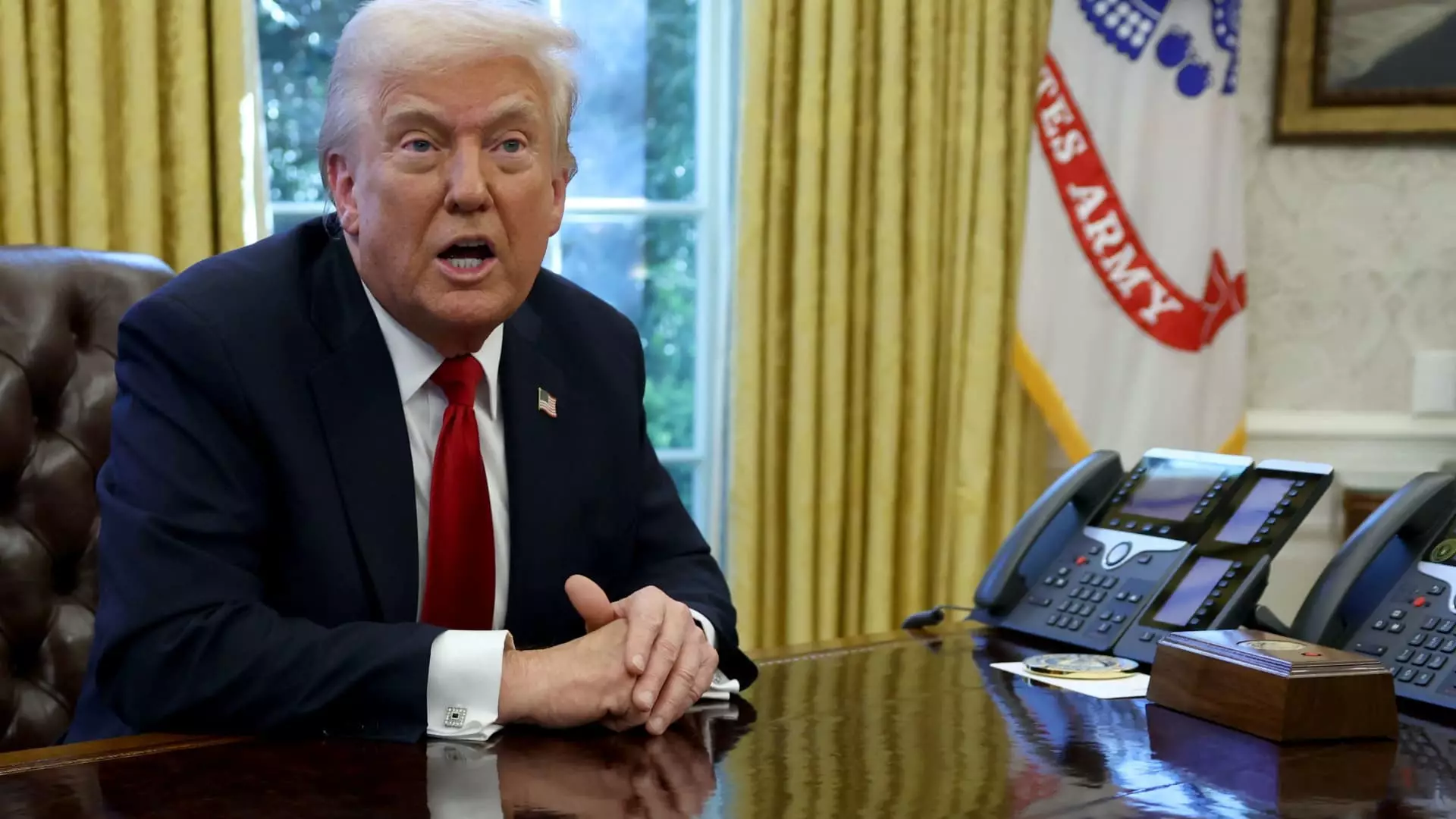In a bold move that reverberated throughout the automotive industry, President Donald Trump recently announced his intention to impose a staggering 25% tariff on imported vehicles. This declaration invokes a sentiment of nationalism and has stirred up conversations about the continued viability of American manufacturing. Yet, within this complexity lies a narrative that intertwines the future of key industry players like Tesla and its dynamic CEO, Elon Musk, who stands at the intersection of technology, innovation, and political intrigue.
Trump’s relationship with Musk requires careful scrutiny. Musk has often aligned himself with the administration, contributing a notable $290 million to support Trump’s presidential campaign, which begs the question: is this a symbiotic partnership, or are conflicting interests bubbling beneath the surface? Trump alluded to such complexity when he remarked that Musk had avoided providing any opinions on the matter, hinting at a potential conflict due to his advisory role. This opens a floodgate of debate on the nature of governance in which business and political aspirations are often intertwined, steered by the ambitions of a singular, powerful figure.
The Role of Government Efficiency and Economic Restructuring
Moreover, Musk’s leadership of the Department of Government Efficiency (DOGE) adds an additional layer of dynamism to the unfolding scenario. This initiative is particularly ambitious, aiming to reduce federal spending and streamline governmental operations. Yet, the question lingers: can an individual leading successful private enterprises be trusted to navigate the complexities of public sector efficiency without compromising the very ideals of democracy or fair competition? The double-edged nature of such business-politics interplay could signal a departure from established practices that ensure equitable industry standards.
This convergence of power was manifested when Trump transformed the South Lawn of the White House into a Tesla showroom, showcasing five electric vehicles. Trump’s admiration for the unique design of the Tesla Cybertruck highlights more than mere support for an American staple; it represents a political statement endorsing innovation and progressive energy solutions. Yet, the symbolic value of this act raises questions about the integrity of such endorsements. Are we witnessing genuine support for sustainable technology, or merely a publicity stunt that intertwines Trump’s branding with Musk’s corporate success whilst sidelining critical discourse on the implications of foreign tariffs?
The Trade-Offs: Analyzing Tariffs’ Impact on Competition
Interestingly, Trump’s assessment of the tariffs being “net neutral or even beneficial” for Tesla hints at optimism for domestic manufacturers. However, this theory begins to crumble under scrutiny when considering Tesla’s operational realities. The company, despite its bold strides toward localization, has admitted in communications with the U.S. Trade Representative that many components remain challenging to source domestically. This predicament not only underscores the nuances of global supply chains but also brings to light the inherent risks of imposing tariffs without comprehensive oversight or strategy.
As the landscape of electric vehicles expands, competition intensifies. Established players like General Motors and Ford, as well as up-and-comers like Rivian, face a new battleground where not only are they fighting for market share, but they must also grapple with the repercussions of trade policies. The recent decline in stock shares for these manufacturers in the wake of the tariff announcement adds a stark and unsettling dynamic to the already competitive electric vehicle market.
The Unknown Future of the U.S. Electric Vehicle Market
Furthermore, one of the significant challenges lies in foreign competitors. Companies like BYD in China remain unauthorized to sell in the United States, presenting a significant barrier. However, as the global electric vehicle market evolves, regulatory pathways could potentially shift, allowing established foreign competitors to enter the U.S. landscape rapidly. Would the imposition of tariffs truly protect American manufacturing, or could it inadvertently accelerate competition that undermines American firms’ foothold?
Tesla’s burgeoning rivalry with traditional auto manufacturers represents a broader narrative of technological evolution and market rivalry. Musk’s continued hold over his enterprises, amid his governmental role, reflects not only a triumph of entrepreneurial spirit but also ignites conversations about the ethical implications of such concentrated power. It remains to be seen whether the tariffs will ultimately serve as a boon for the American automotive industry, or whether they will unearth more profound challenges that could give rise to a new era of market competition—one that requires tact, innovation, and above all, adaptability.

